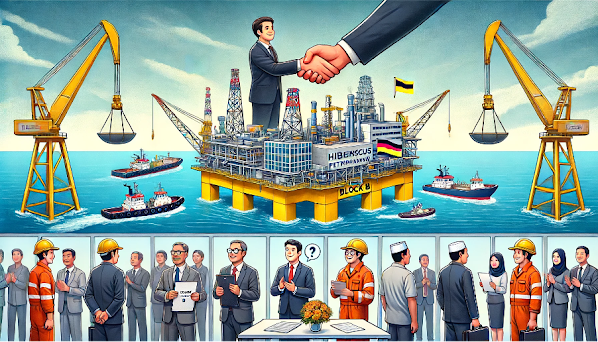Are the authorities in Brunei truly upholding the rights and welfare of foreign workers, or are they turning a blind eye to rampant exploitation and abuse?
This provocative question has taken center stage as talk on labor issues continues following the U.S. State Department’s recent downgrade of Brunei to Tier 3 in its annual Trafficking in Persons (TIP) Report. This move, which could result in sanctions or reductions in U.S. aid, raises serious concerns about Brunei's efforts to combat human trafficking and protect vulnerable workers.
A Dark Reality Exposed
The TIP Report’s damning findings highlight significant failings in Brunei’s approach to human trafficking. For seven consecutive years, Brunei has reportedly not convicted a single human trafficker. Instead, allegations suggest that victims of trafficking have been punished through prosecution or deportation, compounding their suffering rather than providing necessary support.
Secretary of State Antony Blinken's message underscored the global crisis: "An estimated 27 million people are exploited for labor, services, and commercial sex worldwide." This exploitation often occurs in plain sight, with traffickers prey on the most marginalized individuals, forcing them to work in fields, factories, and homes under dire conditions.
Local Reaction: A Nation Divided
The downgrade has sparked a debate within Brunei about the treatment of foreign workers and the effectiveness of labor and immigration authorities. Recent public discussions reveal a stark contrast between the government's promises and the reality on the ground.
An opinion piece in the Borneo Bulletin praised recent enforcement actions against abusive employers but argued these efforts are insufficient. The writer, who frequently interacts with foreign workers, described the harsh realities many face, including excessive working hours, inadequate rest, and substandard living conditions. One shocking example involved an employer who proudly admitted to giving workers only one day off per month, a situation unimaginable for local employees.
Cultural and Structural Impediments
In Brunei, respect for authority is deeply ingrained in both family and workplace settings. This means that questioning or challenging superiors is often discouraged, allowing harmful practices to continue unchecked. Workers may feel powerless to speak out against mistreatment, fearing retribution or believing they must obey their superiors. This deference to authority can prevent progress in promoting human rights and labor protections.
Critics suggest that a simple awareness campaign is unlikely to effect meaningful change. Instead, they call for reintroducing civic education in schools and enforcing harsher penalties for labor violations. Such measures, they argue, are essential to fostering a more just and humane society.
Critics believe that raising awareness alone won't solve these deep-seated issues. They recommend reintroducing civic education in schools to teach values of human rights, equality, and justice from a young age. This would encourage future generations to challenge unfair practices. Additionally, enforcing harsher penalties for labor violations, including significant legal consequences like imprisonment, is crucial. These steps are necessary to ensure that exploitation and abuse are not tolerated and to promote greater accountability and respect for all workers.
Official Response: Promises vs. Reality
In response to the growing criticism, the Labour Department has reiterated its commitment to enforcing employment standards as per the Employment Order of 2009. The department has urged workers to report mistreatment and has highlighted the potential penalties for violators, which include fines and imprisonment. However, the persistence of abuse allegations casts doubt on the effectiveness of these measures and the integrity of the enforcement agencies.
Call to Action: A Moral Imperative
As Brunei faces scrutiny over its treatment of foreign workers, there is an urgent need for comprehensive reforms. Foreign workers are integral to the nation's economy and infrastructure, and their rights and dignity must be upheld. The TIP Report should catalyze change, prompting the government and society to take concrete steps towards eradicating exploitation.
Conclusion: A Path Forward
Addressing the issues highlighted in the TIP Report requires a collective effort from all sectors of Brunei's society. Ensuring fair and humane treatment of every worker is not just a legal obligation but a moral one. With sustained commitment and genuine reform, Brunei can improve its international standing and, more importantly, the lives of those who labor within its borders. (MHO/07/2024)


.jpeg)






